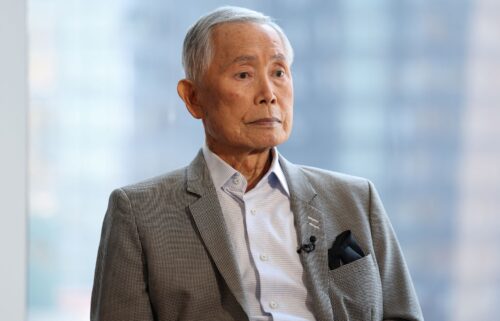‘Depp v. Heard’ zooms in on the social media frenzy surrounding the trial
Review by Brian Lowry, CNN
(CNN) — “Depp v. Heard” wants to have it both ways, to appear as if it’s saying something profound about the circus-like 2022 trial while adding another leering ring to it via a three-part docuseries. Emphasizing the social-media frenzy that surrounded the case, alas, proves more irritating than illuminating, with the one truly worthwhile element being how the producers present the two principals’ conflicting accounts side by side.
The editing works in one key respect, alternating between testimony by Johnny Depp and Amber Heard in the former’s defamation lawsuit against his ex-wife, stemming from an opinion piece she wrote for the Washington Post about sexual abuse. The format highlights how the jury heard sharply different versions of events, about matters as serious as an alleged assault on an airplane to those as ridiculous as a purported “prank” involving an item found on a bed.
Directed by Emma Cooper for the UK’s Channel 4 before landing on Netflix, “Depp v. Heard” zooms out to convey the overheated atmosphere that encircled the Virginia courthouse, and the voyeurism that fueled the public’s fascination. That includes vitriol directed at Heard via online forums, as well as questions about the authenticity of some of those postings.
The filmmakers, however, become too enamored with that aspect of the story, so much so that a disproportionate amount of the near-2 ½-hour running time gets devoted to replaying analysis from self-identified Depp supporters on TikTok, intercut with media coverage from more conventional press outlets.
While people ranting online is a sign of the times, how much is gained from listening to a guy in a Deadpool mask offering extensive trial takes is a question “Depp v. Heard” should have contemplated and apparently didn’t.
Similarly, if that material is intended to show how some of the negative reactions to Heard demonstrated a backlash against, or setback for, the #MeToo movement, the cut-and-paste approach doesn’t enlist experts or fresh interviews to articulate the argument.
For many, there was a profit incentive built into all that passion, as the clips of trial watchers urging viewers to hit the “subscribe” button makes clear. But the film suffers from its commitment to serve two masters, trying to get at the elusive truth of what transpired between this famous couple while providing a jaundiced view of the way social media has poisoned a collective grasp of truth.
An equally compelling thread, frankly, would address the extent to which mainstream media were forced to follow the online crowd, exhibiting as much hunger for clicks as those TikTok personalities. Another, perhaps more sociological issue would be what motivated people to become so invested in a trial like this, illustrated by the emotional outpourings posted when the jury returned a favorable verdict on Depp’s behalf.
According to Netflix, the docuseries raises “provocative, uncomfortable questions” about social media, and whether it might have influenced the outcome of the case. What it doesn’t provide, ultimately, is much new in the way of answers.
Maybe that’ll have to wait for “Depp v. Heard,” part II.
“Depp v. Heard” premieres August 16 on Netflix.
The-CNN-Wire
™ & © 2023 Cable News Network, Inc., a Warner Bros. Discovery Company. All rights reserved.

